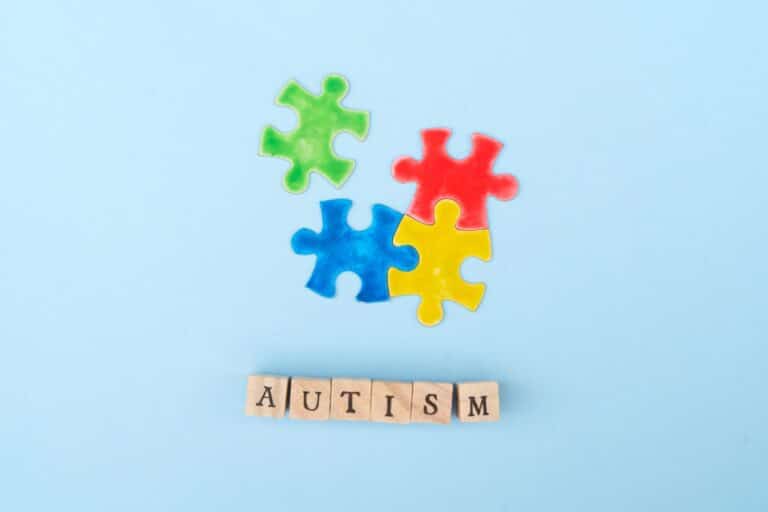The abuse of methamphetamine is becoming more common throughout the United States. But what does meth do to your brain?
Whether it’s a legal prescription, Desoxyn, or an illegal form, like crystal, all forms of meth are highly addictive and can cause severe health problems that can be permanent and even fatal.
If you or someone you know is suffering from meth addiction, you know how debilitating it can be. But that doesn’t mean it can’t be overcome.
If you’re looking for more information to guide you toward help for you or a loved one, keep reading our page.
Our article is going to focus on:
- Understanding addiction
- Signs of meth addiction
- Short-term effects of meth use
- Long-term effects of meth use
- What does meth do to your brain
- How to find treatment
Understanding Methamphetamine Addiction
What does meth do to your brain? When someone uses meth, it forces their brain to release neurotransmitters called noradrenaline and dopamine.
Noradrenaline causes a “fight or flight” chemical response, and dopamine allows us to experience pleasure, as well as enhance our focus and memory.
Between these two neurotransmitters, the effects of meth can give someone the feeling of euphoria and a heightened level of focus. Because of these rewarding sensations, the drug teaches the brain to keep taking it to continue the pleasurable effects.
After continued use, the amount and potency of the drug will need to be increased to continue feeling the same level of pleasure. This is how people get addicted to meth.
Signs of Meth Addiction
If you’re concerned for a loved one you think might be using meth, there are a few signs you can notice. We’ve made a brief list of the common signs of meth addiction from an outsider’s perspective.
- Rotting teeth
- Significant weight loss
- Acne and sores
- Intense scratching
- Paranoia
- Dramatic mood changes
How Meth Affects Your Health
Meth causes many health issues, but the longer that it’s used, the more damaging effects it can have on your health.
We’ve made a list of some of the short-term and long-term effects that meth has on your overall health, and then we’ll delve more into what long-term meth use does to your brain.
Short-Term Effects
When someone uses meth, they’re exposing their body to a wide range of negative side effects right away. Many of these side effects are in response to noradrenaline.
Here are some of the short-term effects of meth:
- Awful breath
- Clenched jaw
- Decreased appetite
- Diarrhea
- Dilated pupils
- Dry mouth
- Excessive sweating
- Insomnia
- Nausea
- Teeth grinding
- Tremors
Long-Term Effects
While the short-term meth usage effects list was pretty damaging, the long-term use list is much more severe.
- Addiction
- Anxiety
- Aggressive behavior
- Brain damage
- Cardiovascular damage
- Cognitive issues
- Dental problems
- Depression
- Kidney damage
- Liver damage
- Lung disease
- Memory loss
- Meth mites and sores
- Mood disturbances
- Premature aging
- Psychosis
- Weight loss
When people use meth chronically and become addicted, their body becomes tolerant and requires more meth to stay functional. At this point, if the user stops using meth, they’ll go into withdrawal.
What Does Meth Do to Your Brain?
Now that you understand how damaging meth can be to your overall health, we’re going to delve more into how meth damages your brain.
Kills Glial Cells
Glial cells are a significant part of the central nervous system. They’re responsible for signaling capacities, fighting infections, and developing myelin cells.
The use of meth damages and kills these cells throughout areas in your brain, but especially in your prefrontal cortex. This is the part of the brain that allows you to pay attention, think abstractly, make judgment calls, and make plans.
Therefore, the use of methamphetamines will negatively impact your cognitive abilities.
Decreases Myelin Cells
Myelin cells, also called white matter, play an important role in signaling between neurons. These cells are responsible for many basic functions of the central nervous system.
Methamphetamine kills glial cells, which are responsible for developing myelin cells. Therefore there will be more functional mistakes, lacking effective communicators in the central nervous system.
Less Dopamine and Serotonin
When you use meth, it forces your brain to use its stored dopamine. Chronic use can deplete your dopamine and serotonin, leaving you prone to dramatic mood effects.
Neurotoxic Effects
The use of methamphetamines increases the amount of glutamate calcium in the brain. Glutamate calcium is associated with neurotoxic effects that will damage the dendrites on neurons.
Damage to the dendrites will prevent the neurons from being able to communicate properly. This will cause various issues for both cognitive and motor functions.
Treatment for Meth Addiction
Because of the severe effects that come with meth withdrawal, the likelihood of relapse, in the beginning, is high. That’s why addiction treatment is so important.
Our meth addiction treatment focuses on getting you medically detoxed from methamphetamines away from the stresses of everyday life.
We use holistic methods and behavioral therapies to help patients change their perceptions of themselves and the world.
Let Us Help
Recovering from addiction is a long road, but it starts once you’ve decided to quit. If you’re looking for reasons to quit for yourself or to help someone else, understanding the danger of methamphetamines is a good start.
Now that you know all about meth’s effects and “what does meth do to your brain?” has been answered, you’re better informed to decide if you or someone you love needs help.
Our inpatient meth rehab program accepts most insurance, so you or a loved one can focus on recovering in a safe environment under the care of trained professionals. Reach out to us for a free insurance verification to see how you can start your recovery journey.






